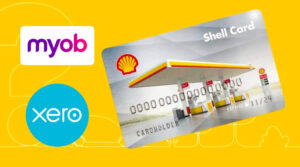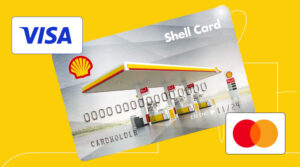The popular fleet fuel card is a payment system for drivers to purchase fuel for company vehicles. Unlike fuel cards for non-business individuals, a fleet card offers superior control, convenience and comprehensive reports that can help reduce company costs. Likewise, it can enable a business to buy fuel and maintenance work from authorised fuel dealers and maintenance merchants.
In the past, fuel cards were originally created by travel centre chains and gas stations in an attempt to keep customers loyal to them… selling more gas and petrol in the process. However, the benefits of a fuel card for a company fleet has far more benefits than may initially meet the eye. It can save a business a lot, and we’re not just talking about money.
There are three main types of fuel cards:
- Business fuel cards are perfect for small to medium-sized businesses. They simplify accounting for vehicle costs, fuel costs and allow an easier and more accurate budgeting process. They save drivers having to purchase fuel from their own personal funds or from the company having to fork out cash or credit cards to cover fuel. Not only drastically reducing admin costs, these fuel cards also decrease the risk of theft from employees; inevitably saving you money over the long run.
- Fleet fuel cards work in the same way as business fuel cards, with the main difference being the vehicle used for fuel purchases. Fleet cards are for large vehicles and are useful for maintaining fuel efficient and budgeting diesel costs.
- The last are individual fuel cards designed for regular consumers, providing petrol discounts, cashless purchases and greater convenience. In contrast, prepaid fuel gift cards are as good as their outstanding balance: while they can be used to pay for fuel, they cannot extend any credit. The amount must also be used up before the card expires.
So, How Much Can You REALLY Save?
Fixed Price vs. Pump Price
Fleet fuel cards offer two main fuel pricing systems: fixed price or pump price.
A fixed price fuel card can be used for a given period of time, unaffected by retail price shifts. This fuel card is ideal for high mileage businesses, as they can save a significant amount of money on diesel due to the huge amount of fuel consumed by vehicles. Other providers source fuel from competitively priced suppliers, giving you options to choose the most cost-effective fuel. Pump price fuel cards on the other hand target businesses that incur a lot of driving costs, offering loyalty schemes and special prices. Fuel cards allow you to tailor your card according to your business’ unique needs, vehicle types and route preferences.
No Receipt Loss or Errors
Fleet fuel cards reduce the chance of lost receipts to zero, due to the fact they are connected directly to your chosen accounting system. You can update and check expenses by accessing your fuel card account online, meaning expenses and purchases can be viewed in real-time. This results in significantly less time needed by your accountant and money saved at the end of each month.
Reduced Admin Fees
Just as fuel cards save your accountant time, a major saving factor that comes with fleet fuel cards is the reduced amount of work needed by your admin and accounting staff. Your staff don’t need to follow up with drivers regarding lost receipts or log all the fuel invoices into the system. Instead, your fuel card company will send out a neat invoice that totals the entire fleet‘s fuel costs at the end of each month.
This results in a significant amount of savings in less time paid out to employees.
Monitor Overspending
Fleet fuel card accounts let you generate reports or download fuel useage data. With the information available to you, you can analyse expenditures or view an overview of your fuel expenses based on a standard report. By analysing these, you can effectively identify vehicles and reduce business expenses. That said, choosing a fuel card that shows fuel efficiency for each vehicle is absolutely vital.
Find Fuel-efficient Routes & Vehicles
Integrating fuel cards with GPS and odometer readings can help drivers find more cost-efficient routes, saving on fuel, time, and money. With a GPS-powered fuel card, fuel transaction reports can provide details such as fueling location, litres pumped, date and time of refuelling, and the driver who purchased the fuel. This technology is also extremely useful in identifying and preventing fuel fraud.
Meanwhile, a fuel card with odometer readings allows a fleet to reduce its operating costs because it records kilometre with every single transaction. With a fleet fuel card, it’s easy to monitor maintenance costs and schedule regular vehicle maintenance.
Odometer readings in fuel card reports also allow you to recognize and identify problematic vehicles that may not be performing as fuel efficient as they should be. More importantly, fuel card transactions need to be tied to the right vehicle in order to generate reports and accurate record mileage.
Comparing Fuel Cards
When choosing the best fuel card for your fleet, it really pays to compare offers from several providers. Opting for lowest-priced fuel on any given day despite fuel price surges can result in money saved and less money spent on fuel.
Fleet fuel cards are beneficial to almost any fleet and can save both time and money in the long run. Even if you’re loyal to a brand or fuel provider, checking your options can allow you to get the perfect fleet card to match your fleet‘s unique needs and spending habits.


